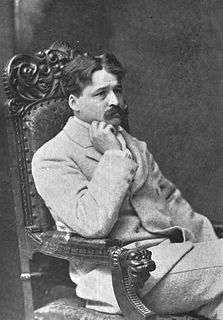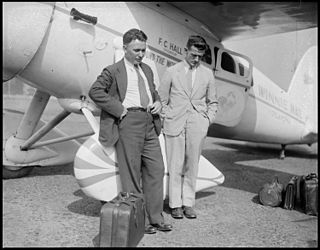A Quote by Arthur C. Clarke
Some dangers are so spectacular and so much beyond normal experience that the mind refuses to accept them as real, and watches the approach of doom without any sense of apprehension. The man who looks at the onrushing tidal wave, the descending avalanche, or the spinning funnel of the tornado, yet makes no attempt to flee, is not necessarily paralyzed with fright or resigned to an unavoidable fate. He may simply be unable to believe that the message of his eyes concerns him personally. It is all happening to somebody else.
Quote Topics
Accept
Any
Apprehension
Approach
Attempt
Avalanche
Believe
Beyond
Concerns
Dangers
Descending
Doom
Else
Experience
Eyes
Fate
Flee
Fright
Happening
He Man
Him
His
His Eyes
Looks
Makes
Man
May
Message
Mind
Much
Necessarily
Normal
Paralyzed
Personally
Real
Refuses
Resigned
Sense
Simply
Some
Somebody
Spectacular
Spinning
Them
Tornado
Unable
Unavoidable
Watches
Wave
Without
Related Quotes
You need eyes that tell the dog who watches them what you are feeling toward it, even though the message may be hidden from the outside world. Above all, you nee telepathy so that the dog thinks with you. These things are not always born in people. They can be developed as any sense or gift can be developed. That is, providing the person wishes to develop them is honest in mind, because with animals you cannot cheat.
[Speaking of his experience in a concentration camp:] As we said before, any attempt to restore a man's inner strength in the camp had first to succeed in showing him some future goal...Woe to him who saw no more sense in his life, no aim, no purpose, and therefore no point in carrying on. He was soon lost.
Fright is something one can never get over. When a warrior is caught in such a tight spot he would simply turn his back to the ally without thinking twice. A warrior cannot indulge thus he cannot die of fright. A warrior allows the ally to come only when he is good and ready. When he is strong enough to grapple with the ally he opens up his gap and lurches out, grabs the ally, keeps him pinned down and maintains his stare on him for exactly the time he has to, then he moves his eyes away and releases the ally and lets him go. A warrior, my little friend, is the master at all times
The men and woman who make the best boon companions seem to have given up hope of doing something else...some defect of talent or opportunity has cut them off from their pet ambition and has thus left them with leisure to take an interest in their lives of others. Your ambition may be, it makes him keep his thoughts at home. But the heartbroken people - if I may use the word in a mild, benevolent sense - the people whose wills are subdued to fate, give us consolation, recognition, and welcome.
I do not believe there is any such sixth sense. A man with a good sense of direction is, to me, quite simply an able pathfinder - a natural navigator - somebody who can find his way by the use of the five senses (sight, hearing, taste, smell and touch - the senses he was born with) developed by the blessing of experience and the use of intelligence. All that pathfinder needs is his senses and knowledge of how to interpret nature's signs.
From the social cognitive perspective, it is mainly perceived inefficacy to cope with potentially aversive events that makes them fearsome. To the extent that people believe they can prevent, terminate, or lessen the severity of aversive events, they have little reason to be perturbed by them. But if they believe they are unable to manage threats safely, they have much cause for apprehension.
The book, the college, the school of art, the institution of any kind, stop with some past utterance of genius. . . . They look backward and not forward. But genius looks forward: the eyes of man are set in his forehead, not in his hindhead: man hopes: genius creates. Whatever talents may be, if the man create not, the pure efflux of the Deity is not his; - cinders and smoke there may be, but not yet flame.
Some people live their lives as if each day will be their last. Some approach love the same way, in a desperate attempt to outrun the tiny changes
or huge ones that are always looming on each of our horizons. But the sense of urgency that comes from wanting to experience life and love to the
fullest can force decisions that are not always in your best interests or anyone else's, for that matter. In fact, sometimes facing the consequences of
your choices can be even worse than death. You may live only once, but you don't necessarily want it to feel like forever.
Man was destined for society. His morality therefore was to be formed to this object. He was endowed with a sense of right and wrong merely relative to this. This sense is as much a part of his nature as the sense of hearing, seeing, feeling; it is the true foundation of morality... The moral sense, or conscience, is as much a part of man as his leg or arm. It is given to all human beings in a stronger or weaker degree, as force of members is given them in a greater or less degree. It may be strengthened by exercise, as may any particular limb of the body.
When a man makes a poem, makes it, mind you, he takes words as he finds them interrelated about him and composes them - without distortion which would mar their exact significances - into an intense expression of his perceptions and ardors that they may constitute a revelation in the speech that he uses. It isn't what he says that counts as a work of art, it's what he makes, with such intensity of perception that it lives with an intrinsic movement of its own to verify its authenticity.
Arise! Arise! A tidal wave is coming! Onward! Men and women, down to the Chandala (Pariah) - all are pure in his eyes. Onward! Onward! There is no time to care for name, or fame, or Mukti, or Bhakti! We shall look to these some other time. Now in this life let us infinitely spread his lofty character, his sublime life, his infinite soul. This is the only work - there is nothing else to do.
The wise man does nothing but what can be done openly and without falseness, nor does he do anything whereby he may involve himself in any wrong-doing, even where he may escape notice. For he is guilty in his own eyes before being so in the eyes of others; and the publicity of his crime does not bring him more shame than his own consciousness of it.
Now let's move on to the subject of how a real man treats his wife. A real man doesn't slap even a ten-dollar hooker around, if he's got any self-respect, much less hurt his own woman. Much less ten times over the mother of his kids. A real man busts his ass to feed his family, fights for them if he has to, dies for them if he has to. And he treats his wife with respect every day of his life, treats her like a queen - the queen of the home she makes for their children.
For the powers of our mind, life, and body are bound to their own limitations, and however high they may rise or however widely expand, they cannot rise beyond them. But still, mental man can open to what is beyond him and call down a Supramental Light, Truth, and Power to work in him and do what the mind cannot do. If mind cannot by effort become what is beyond mind, Supermind can descend and transform mind into its own substance.





































